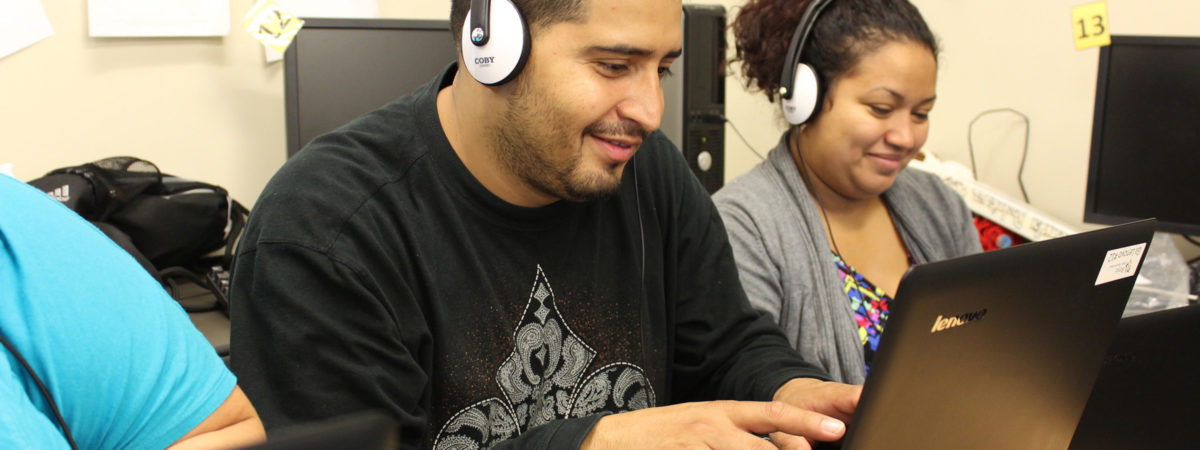
February 9, 2021 | By Barbara Pape
In partnership with educators, researchers, and training providers, Digital Promise’s Learner Variability Project has developed an evidence-based Adult Learner Model.
The model is built on a whole learner framework of adult literacies, cognition, social-emotional learning, and learner background—all of which research shows are essential factors of learning. The goal? To place learning sciences research for adults at the fingertips of adult and continuing education leaders and edtech product developers so they can provide evidence-based strategies that ensure each adult learner meets their potential and is prepared to thrive in a 21st-century job market.
“Many people recognize a range of essential skills adults need to succeed in the workplace and community—digital literacy, communication, problem solving—but fewer understand the myriad connections and context in which these skills reside,” said Medha Tare, PhD, director of research for the Learner Variability Project. “Our Adult Learner Model places learners in context and shows how their cognitive abilities, emotional skills, and background factors weave together so we can better understand their ability to learn and more appropriately build skill development across contexts.”
Brendaly Drayton, Ph.D., Scholar in Residence, Learning Communities, Pennsylvania State University, on why it is important to include LVN’s whole person framework when developing programs for the adult learner.
The Adult Learner Model is not a curriculum. Instead, it can be used to supplement and support any program or edtech platform being used to provide rigorous instruction for adult learners. A key function of our Learner Variability Navigator (LVN) is the ease with which the web app can tailor instruction to meet the individual needs of each learner. Based on the factors a facilitator or product developer selects, connections are made to strategies that aptly consider those factors.
“When instructors, trainers, and edtech developers are designing learning experiences for adults, the strategies selected should build on the strengths of the individual learners, clearly support their needs in meaningful ways, and build on their lived experiences,” said Trisha Callella, product partnerships director for the Learner Variability Project. “The Adult Learner Model Strategies identify how to support the full diversity of adult learners aligned to selected factors.”
A few strategies unique to the Adult Learner Model that support cognition, social emotional learning, and unique learner backgrounds include:
Todd Windisch, Assistant Professor, English as a Second Language, College of San Mateo; on the importance of considering the evidence-based factors of learning when working with adult English Language Learners.
Many adult learners enter the workforce with less-than-adequate K-12 schooling or training as a result of longstanding systemic inequities in our country. Individual anxiety may have also swelled over time, weighing heavily on their current ability to learn. The LVN, through the Adult Learner Model, personalizes the learning experience, encouraging a deeper understanding of each learner that creates a sense of belonging for each adult learner.
An underlying principle of the Adult Learner Model is that people are experts of their own experiences. The framework is built to encourage educators, providers, and edtech developers to first learn about their students in order to co-design more meaningful learning experiences.
“We often design education and workforce training programs with the best of intentions, then recruit adult learners for participation and measure rates of completion to mark success,” said Sarah Cacicio, senior project director of adult learning at Digital Promise. “The Learner Variability Project’s Adult Learner Model makes clear the need to throw out assumptions about what people need, and learn more about the whole person to create meaningful opportunities for learning and achievement.”
For more information, visit the new Adult Learner Model, read “The Science of Adult Learning: Understanding the Whole Learner,” and watch the webinar Learner Variability Among Adult Learners: Strategies for Programs and Practices.
By Dr. Kyle Dunbar and Katie Wilczak
By Elliott Barnes and Sara Mungall